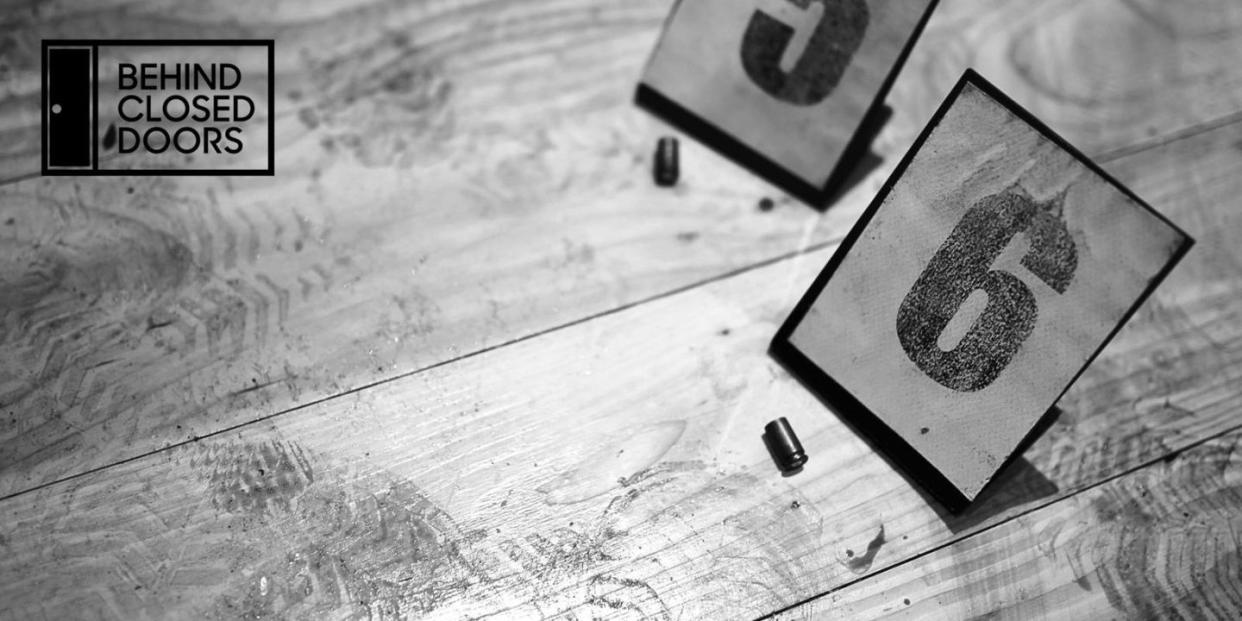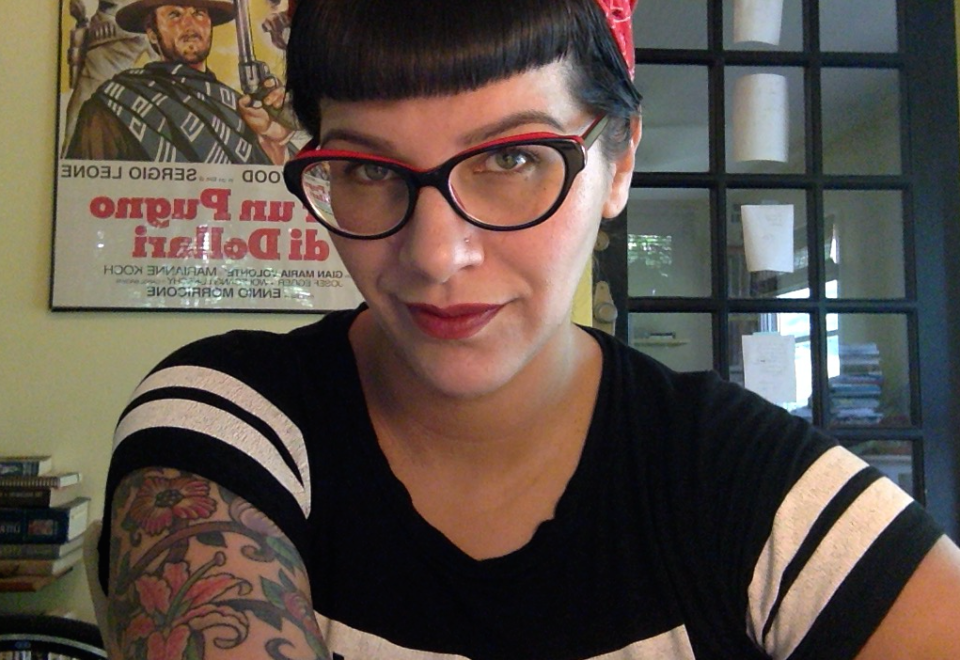I Had to Deal With My Dad's House After He Committed a Brutal Murder-Suicide in It

On New Year's Eve of 1999, as I guzzled Yuengling Lagers and waited for planes to fall out of the Y2K sky, my father called for the first time in a year. But he was so drunk that he didn't recognize my voice. In fact, he insisted I wasn't me. I pleaded with him — Dad, it's really me — but he slurred at me to go find his daughter. Somehow, this was the proverbial straw.
Our relationship had been pockmarked by years of abuse — by violence and emotional bullying so fierce that I'd had little to do with him since I was 16. I knew the dad I'd been dealt biologically wouldn't magically morph into the one I wanted, but I still wanted a dependable dad. I wanted a mythological TV dad.
I'd spent my life forgiving him and his unstable behavior, but I decided right then — let's call it a resolution — that if my father didn't know my voice, he didn't deserve it. That was the last time I spoke to him.
About 4 years later, another call came. This time, it was my brother. There was such a deep silence on the line that I thought we had a bad connection. Finally, my brother's voice broke through:
"Lis, I think dad's been murdered."
I immediately began shaking — a deep quake that seemed to swell up from my bones. I'd secretly wished him dead so many times that I couldn't be sure if I was shaking with grief or relief that my life-long tormentor was dead. In retrospect, I think it was both. I told my brother to come over right away.
It turns out he wasn't murdered. He was the murderer.
My father fatally shot his live-in girlfriend and her 15-year-old daughter before he killed himself inside his small yellow bungalow. Those were the facts. That much we understood. But the rest of it — the why it happened, the what makes a man fall so horribly apart — we'll never understand that.
Beyond dealing with the shock and pain of all of this, there was my father's estate. I had to clean it up.
In 2003, people were buying and flipping houses for sport, but what would I do with this house? This crime scene? I was 27 and soaked through with grief. At first my brother and I were in it together, but that meant two signatures on every document and discussions on every decision. It was a snail's pace. Within a month or so, we went to the courthouse and I was named executrix, a sexy-sounding word that, as far as I can figure, is Latin for "the screwed one." Nearly as soon as I signed that paperwork, my brother disappeared. Poof. Another ghost.
I don't blame him. Nowadays. I did then, but I was so lost, so unable to think clearly that I couldn't see that he was simply protecting himself. It's the smarter move; step away from the emotionally dangerous. Instead, I was hell-bent on feeling every bit of the pain; ram your head against the emotionally dangerous. Again and again and again.
For a while, my plan was to fix up the house in order to make a little money — some compensation for having a shitty dad seemed in order. But the house. Good god, the house: The bodies had decomposed in it for days, the stench of it so thick and acrid that it cut right through the Vicks VapoRub slathered beneath my nose. Large swaths of carpet had been removed by the police; the exposed floorboards in their absence were stained the purplish brown of dried blood. Bits of blood splatter flecked the walls. On the stove, a pot of corn, the water turned milky as a cataract, topped with dozens of fat, black flies.
But still, I thought, I can fix it.
First, I hired someone with a dumpster to gut the place. I'd taken only a few items: photos that I can't bear to look at, a CD player that enjoyed making my favorite songs skip, and a coin collection that my brother and I spent on cheap, yellow beer at a local happy hour. I gave away everything else. I sold his boat for $500 at a bar. No idea how much it was really worth. I handed away the titles to vehicles to a guy I barely knew. "Just make them go away and they're yours," I said. It's clear that someone else — maybe anyone else — would've been a better executrix.
At the time, I was between degrees and tending bar, so I started lining up help from my blue-collar regulars. A carpenter. An electrician. A painter. I'd given John the painter the key to the house so he could give me a quote, and when he came back, his face was ashen. He removed his hat.
"I don't know how to tell you this, but, uh," John said, picking at the peeling bar top with his fingernail. "The pipes burst. The door and walls have swelled. I could barely get inside."
I was imagining this bloated corpse of a house, like a diseased bouncy castle, when John said, "The ceiling fan blades are pointed at the ground." I must have looked confused because he reached for the poetic. "Like a melted sunflower."
Then he put his hand on my shoulder.
I don't know why that did it — the image of the melted sunflower and that delicate touch — but it was clear to me in that precise moment that I needed to be done with it all or I would wind up destroyed. Like not-coming-back-to-sanity destroyed. So I reached out to one final bar regular for help: a real estate agent.
He was an odd, Southern man, but in just a few months, he managed to sell the house "as is." In New Jersey, you don't legally have to disclose that a violent death has occurred in a home. I didn't say a word; not sure about my realtor, but he was just this side of shady, so I'm betting he kept the story to himself.
Mostly, I hope that someone bulldozed the damned house and burned a couple bushels of sage on the lot. I moved away long ago, and even though I go back home nearly every year, I can't bring myself to drive by it. I feel lucky to have escaped at all. Finally, the lesson I didn't get then has sunk in fully: Sometimes, you have to step away from the danger. For good.

You Might Also Like

